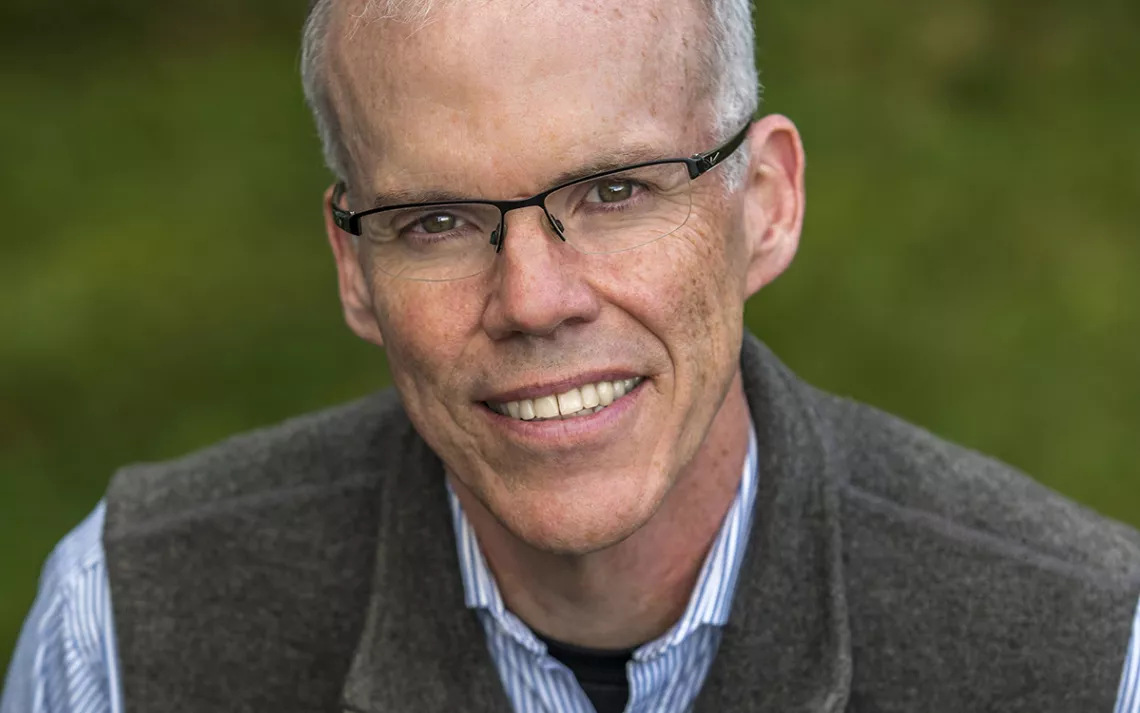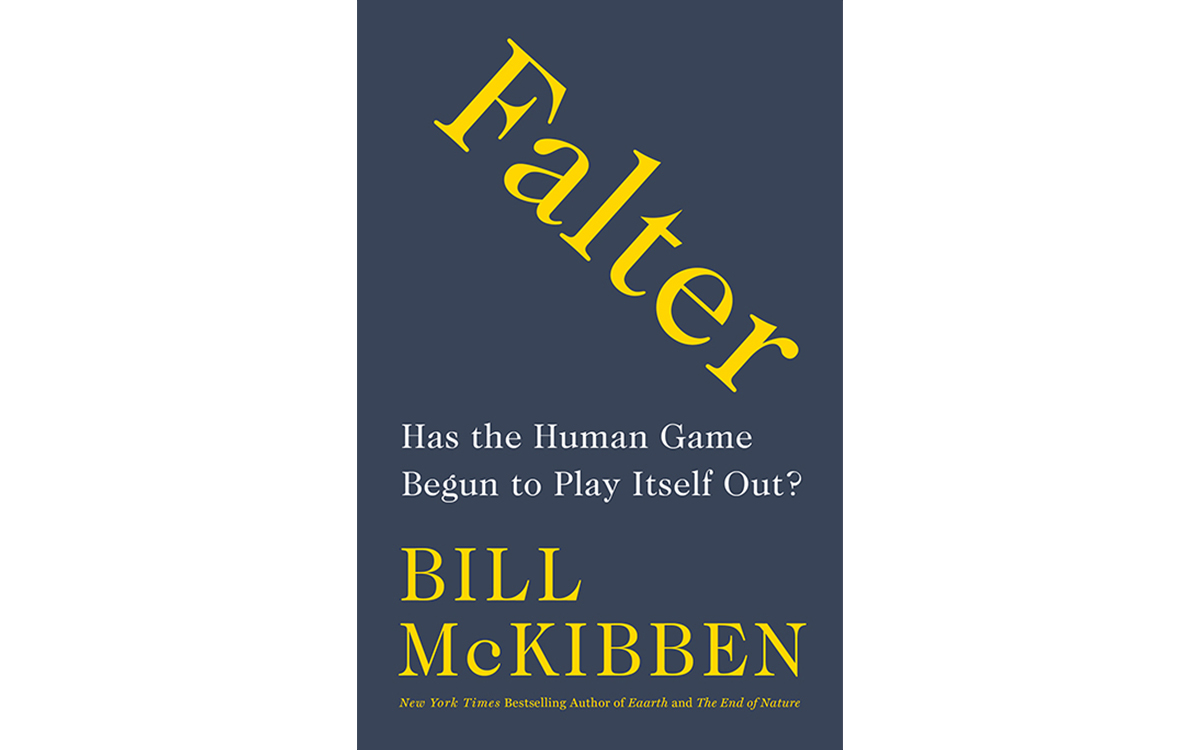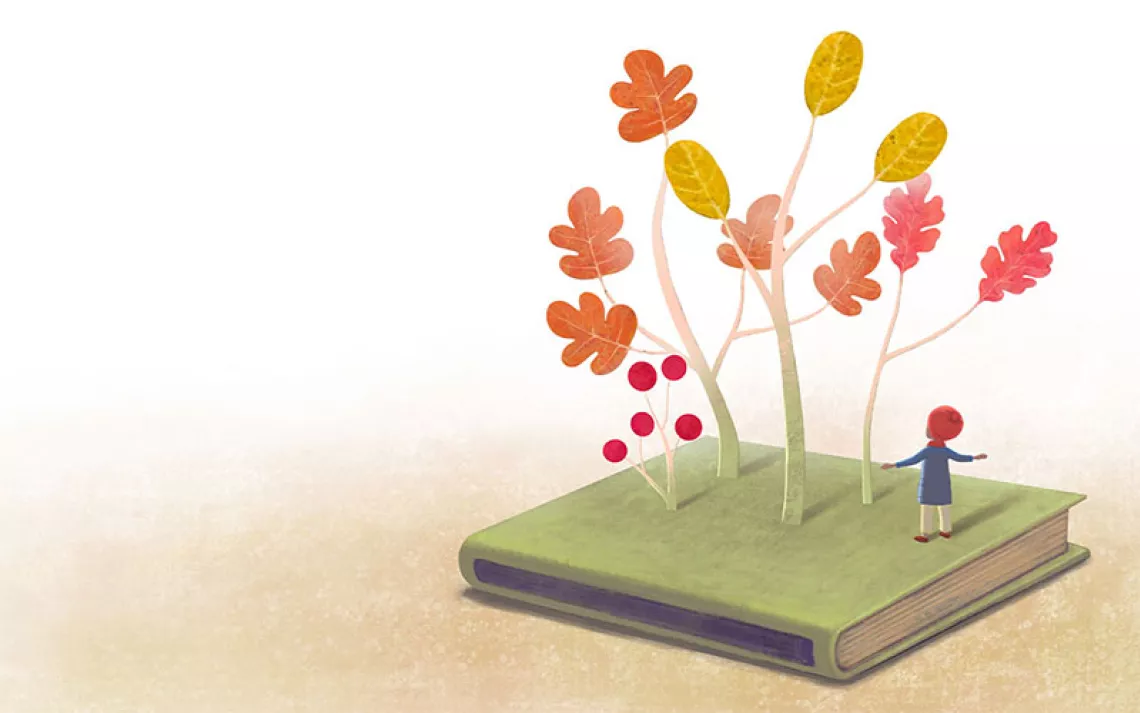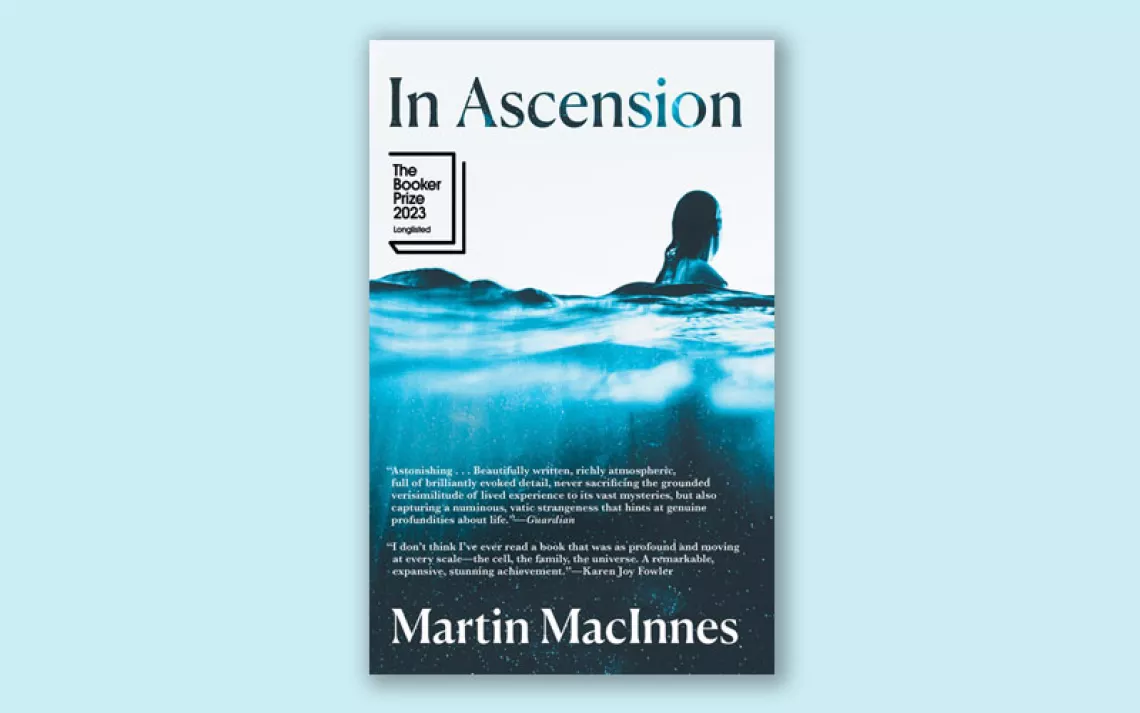Bill McKibben Talks About “Falter”
The climate action pioneer’s new book explores what it means to be human

Courtesy of Nancie Battaglia
Journalist and activist Bill McKibben is back with another book about the crushing realities of climate change.
The author of 1989's The End of Nature, often acknowledged as the first book for a general audience about what used to be known as “the greenhouse effect,” McKibben has been writing about climate issues for three decades.
About 10 years ago, he cofounded 350.org, the first “planet-wide grassroots climate change movement.” 350.org has organized more than 20,000 rallies across the globe in protest of fossil fuels and has promoted the growing fossil fuel divestment movement.
A former New Yorker staff writer, McKibben is the Schumann Distinguished Scholar in Environmental Studies at Middlebury College, a fellow of the American Academy of Arts and Sciences, and the author of more than a dozen books including Enough, Eaarth, and Radio Free Vermont. In 2013, he won the Gandhi Peace Prize and the Thomas Merton Award, given annually to "national and international individuals struggling for justice."
 In Falter: Has the Human Game Begun to Play Itself Out?, out last month from Henry Holt, McKibben surveys the state of havoc caused by climate change, identifies those institutions and individuals that ignore or actively abet it, and turns his attention to new technologies poised to change the very essence of what it means to be human. He also finds a measure of hope for the future, relying on the power of cheap energy and nonviolent resistance.
In Falter: Has the Human Game Begun to Play Itself Out?, out last month from Henry Holt, McKibben surveys the state of havoc caused by climate change, identifies those institutions and individuals that ignore or actively abet it, and turns his attention to new technologies poised to change the very essence of what it means to be human. He also finds a measure of hope for the future, relying on the power of cheap energy and nonviolent resistance.
Sierra recently called up McKibben to discuss climate change, Ayn Rand, and artificial intelligence.
***
Sierra: How does Falter differ from your other books?
Bill McKibben: This is the 30th anniversary of the book that I wrote in 1989, The End of Nature, the first book about climate change. In a way, Falter is a summing up after three decades of where we are. The story is fairly sad, because we haven’t done very much in those 30 years. As a result, what was an abstract and theoretical threat is now daily reality for people all over the world.
The book refers to human civilization as a “game.” Can you explain why you chose that term?
I thought about using the term the "human project," but it seemed more akin to a game. The main goal is just to keep it going. You can play it more elegantly, or not. The biggest test of that is whether people are leading more or less dignified lives.
But the main goal of the game is to continue—what humans have always been good at. We’re now in a moment where that’s called into question both by climate change and by some of the technologies Silicon Valley has begun to arrive at—artificial intelligence, human genetic engineering—things that, like climate change, represent too much power in human hands.
You write in an introduction that you live “in a state of engagement, not despair.” How do you maintain engagement without burning out?
Well, sometimes I’ve burned out a little bit, but we had good luck, in a sense, setting up 350.org. I’m a volunteer there, but it’s been my life for a decade, and it’s worked surprisingly well. I now have amazing colleagues around the planet—most of them in places that did nothing to cause this problem, but all of them nonetheless engaged in the fight. I find that endlessly inspiring.
What are some of the biggest dangers that no one is paying attention to?
In terms of technology, one of the most immediate dangers was revealed in December when the first two designer babies on the planet were born in China, the first two children genetically altered in embryo to produce (inheritable) traits. The medical community and governments around the world have taken steps to try and at least slow that down, but the alarm hasn't been sounded as it should. We’re entering the sphere of turning people into technology. As I describe in the book, I think that’s a big mistake.
One thing that links [tech innovation] to climate change is the sense of libertarian entitlement that goes with all these massive changes. [It’s] where people like the Koch brothers line up with people like Steve Jobs or the Silicon Valley elite. [Libertarian philosophy is] the one thing they have in common, and it’s a dangerous thing. The most powerful people on our planet have convinced themselves that it’s OK for them to make these kinds of changes without asking the rest of us. That’s gotten us into the trouble we find ourselves in.
You write about Ayn Rand in Falter. That seems to be where some of this ideology comes from.
I think Rand definitely exemplifies the sort of mindset that’s governed our country in recent years. Our country has been the most important country in the world at the most important time. Rand's ideas gained an immense amount of leverage as a result. Even though her books are not subtle or nuanced or even wise in any way, her acolytes, including President Trump, have gone on to be the most powerful people in the world.
What's the most surprising thing you learned about Rand and her readers?
The most surprising was simply the number of important people from the Reagan era on forward who’ve said that their favorite book was Atlas Shrugged or The Fountainhead. They’re a literal who’s who of cabinet officials and leading industrialists.
Do you find your Christian practice helpful for maintaining engagement and climate activism?
Yeah. I think mostly the sense that our job is to love our neighbors, which is the central message of the [Christian] Gospels, is extraordinarily helpful in a moment when we’re doing just the opposite, when we’re drowning our neighbors or causing their farms to fail or all the other things that come with climate change. It’s useful to have that [love your neighbor] idea at the back of your head.
In Falter, you write about wildfires in the West. How do you think wildfires will continue to change the landscape over the coming years?
I think that, oddly, the single biggest change to the landscape will be in the psychological landscape of westerners. The notion that these are places of ease, and the sort of relaxed western sense of the landscape, becomes tenser now each year as people understand what we’ve unleashed. That’s one of the saddest things about it.
How did you start seeing the dangers of artificial intelligence and gene editing as they connect to climate?
I wrote a book some years ago called Enough. That got me thinking along these lines. It was about the kind of early research and work on those things. As climate change 30 years ago was still very much an abstract and distant threat, it’s only in the last few years, especially with the advent of CRISPR technology, that we're at a point where it’s becoming part of the landscape. If we don’t take action soon to regulate it, we’ll just kind of wander into this Brave New World without thinking much about it.
What is the big danger with “artificial intelligence?” After all, everybody is looking forward to their driverless cars.
There are many practical things we haven’t worked out yet, like what happens when no one has a job, [though] we talk about those issues a little bit. What we don’t talk about is the almost philosophical danger of a world in which humanness is not a special or interesting thing. I think that that’s a shame because I think humans are extraordinarily interesting, more interesting than any computer program will ever be. Humans are full of interesting limits and contradictions. For me, preserving humanity and the human experience should be the single non-negotiable priority.
Where are spaces in which you see something positive happening?
One of the most positive things that’s happening now is the Green New Deal work, and also the school climate strikes—which I hope will spread to adults before long. The spread of the idea about the Green New Deal is a good thing. The more people talk about it and consider it and think about it, the closer we’ll get for people to understand the scale of action that we need. This is a crisis, as big as World War II or the Depression, and so the means that we need to fight it are going to be on the same scale.
Work around divestment from fossil fuels has gone well and has begun to have a real impact. We’re now at 8 trillion dollars’ worth of endowments and portfolios that have divested. Leading companies in coal, oil, and gas have begun to describe how hard it is to raise capital for expansion. That's very good news, because every day we can keep them from expanding, the price of a solar panel drops another few cents, and the spreadsheet starts to shift to solar power.
[In San Francisco last September] we organized a big march to press then-governor Jerry Brown to stop issuing permits for drilling oil in California, which he would not do. Oil by this point is not a huge part of the economy, but when Jerry Brown’s dad was governor in the '50s, it was a big part. I think [Jerry] never really got it through his head that times had changed. Now people are pressing the new governor, Mr. Newsom, to [stop issuing extraction permits]. We’ll see if Newsom can get that done. If he did, he would be a great hero.
You dedicate Falter to Koreti Tiumalu. Can you say a bit about that dedication?
I would love to. She was a wonderful colleague in the South Pacific who died much too early. The South Pacific has produced per capita more great climate fighters than any place on the planet—not surprisingly, really, since there’s no place on Earth under more dire threat. I wanted to pay tribute to Koreti and to all her colleagues for the amazing work they’ve done. From a difficult, obscure, overlooked part of the world, they’ve punched way above their weight.
Is there anything else you’d like to say about Falter?
I guess just that it’s possible to be honest about the world we live in and hopeful at the same time because, at least for the moment, we still have power to reshape that world. That may not last forever.
Climate change in particular is a timed test. If we don’t solve it soon, we won’t solve it ever. But for right now, we’ve got that possibility. The most important thing people can do is be as engaged in this fight as they possibly can.
 The Magazine of The Sierra Club
The Magazine of The Sierra Club



